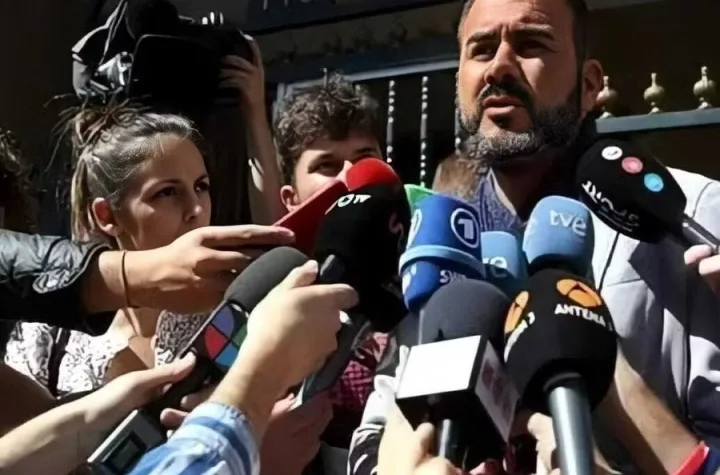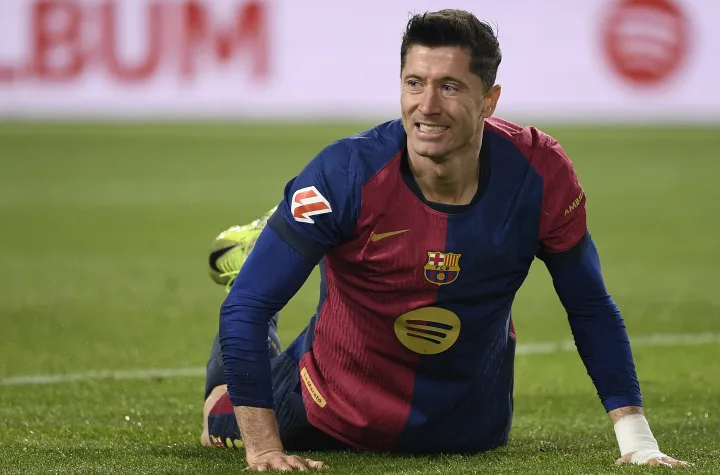
While other European women’s football fans wait anxiously for the end of June to know how their squad might look next season, Barça Femení might already have everything done and dusted in the market.

Yesterday, two reports came in – one from Wolfsburg, one from María Tikas – saying that all but the final details were sorted for (respectively) the arrival of Ewa Pajor and the renewal of Alèxia Putellas.
Not only are Pajor and Putellas the marquee signatures, they are also very expensive. And the Femení need to stay in profit, meaning it could be market closed if the sports direction has had to splash out on the pair.
On Barcelona’s side, they have wanted to negotiate down Pajor’s release clause of €500,000 to a transfer fee at least slightly lower. The club also wanted to find some middle ground over Alèxia’s salary, with indications since the start of the season that the captain was hoping for €1,000,000 (1 million).
How much lower either of those figures were bartered by Barça is a big question mark, though neither will have drastically reduced: ever since Barcelona made Keira Walsh the record women’s transfer, clubs know how much they’re willing to spend on players they want and need, and it’s unlikely Wolfsburg will have accepted a sum for Pajor any lower than Walsh’s €470,000 fee, given how the market has grown since. Alèxia, too, knows exactly her worth, globally and for her childhood club.

And though it’s almost certain Pajor’s fee will be split over the course of her contract, an equal portion paid to Wolfsburg each season, that’s still likely to be €150,000 ready to pay over summer – considering Pajor’s salary also won’t be on the lower end, Barça Femení are probably spending over €1,000,000 on just this pair for the upcoming season.
What complicates these, and theoretical other, transfer operations is that €1,000,000 is roughly the profit margin that the team is dealing with in the 2023/24 season (recent reports suggest a budget of €11–12 million and revenue of €13.5 million for end of 2023). Market spending will be factored in to that €11M budget – but how much was planned?
In terms of women’s football teams that are connected to a parent club, Barça Femení stands out for being a financially independent section (since 2016 and its professionalistion). And within FC Barcelona, the team stands out for being actually profitable (since 2018/19). However, the men’s team reportedly currently relies on Barça Femení turning a profit: the revenues of the various FC Barcelona subsidiaries are among the levers used to prove the club’s financial sustainability. So if those figures aren’t either consistent or improving, the lever would become a detriment rather than an aid in resolving the spending limits applied to the men’s team.
Or, Barça Femení may have access to a €1,000,000 for wages and fees – and €1,000,000 may still be relatively small change to FC Barcelona as a whole – but if the Femení doesn’t look like it meets La Liga Financial Fair Play rules, then it can become a negative in the calculation of the men’s team’s FFP.
A self-imposed spending limit in the women’s team is keeping the books positive for the health of the club’s financial future. With this in mind, if Putellas and Pajor are the only moving parts, that could be Barcelona Femení’s summer transfers all wrapped up.
Of course, departing players who don’t need replacement would only make the profit look more healthy, taking their salary out of the equation. The name that is connected with most movement speculation is that of Mariona Caldentey.

Mariona’s potential renewal is stuck in the land of complication, and she has numerous healthy offers from all over Europe. In recent days, Arsenal Women announced that their creative forward Vivianne Miedema would be leaving at the end of the season – given the timing, Mariona and Miedema’s similar roles, and other extenuating factors, reports in England quickly connected the two.
Though Mariona does not have one of the team’s highest salaries, and seemingly hasn’t been asking for more than the club is willing to give (the issues with her renewal reportedly instead being to do with the uncertain sporting direction – career concerns), there are few senior Barça Femení players who aren’t making six figures a year, and that could be helpful when the margins are so tight in the first place.
There’s also been much more recent speculation that Lucy Bronze might not renew – though the project to keep her has been less talked about, this is not because it wasn’t on the cards.

Bronze is on one of the highest salaries, but Barça would still have to find a replacement so the team maintains squad depth (at least) at right wingback – unable to rely on Marta Torrejón in ball progression, they also need breathing room for (at least) rotation. Bronze’s salary is probably already in the budget, and likely less than the combined cost of buying and paying another player in the role; it would be an error both sporting and financially to let her go.
Being set to also bring in Bronze’s Lionesses teammate Ellie Roebuck on a free, Barça Femení minding their spending for the health of the whole club could close the door on any further signings. But renewals, or lack thereof, may yet still be the go-ahead to explore further options in areas the squad may have need.





More articles
Clash of Titans: FC Barcelona Femení faces Chelsea FCW again in the Champions League.
Miguel Galán: “Tebas actions with Barça have bad faith bordering on an alleged crime of administrative prevarication”
Franc Artiga: “They’re hiring me because I’ve been at Barça for many years”